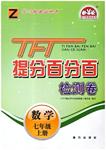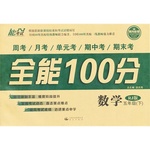题目内容
-I have got a bad cold.
-No wonder you _______these days.
A. have coughed B. coughed
C. have been coughing D. are coughing
练习册系列答案
 提分百分百检测卷系列答案
提分百分百检测卷系列答案 宝贝计划期末冲刺夺100分系列答案
宝贝计划期末冲刺夺100分系列答案 能考试全能100分系列答案
能考试全能100分系列答案
相关题目
题目内容
-I have got a bad cold.
-No wonder you _______these days.
A. have coughed B. coughed
C. have been coughing D. are coughing
 提分百分百检测卷系列答案
提分百分百检测卷系列答案 宝贝计划期末冲刺夺100分系列答案
宝贝计划期末冲刺夺100分系列答案 能考试全能100分系列答案
能考试全能100分系列答案